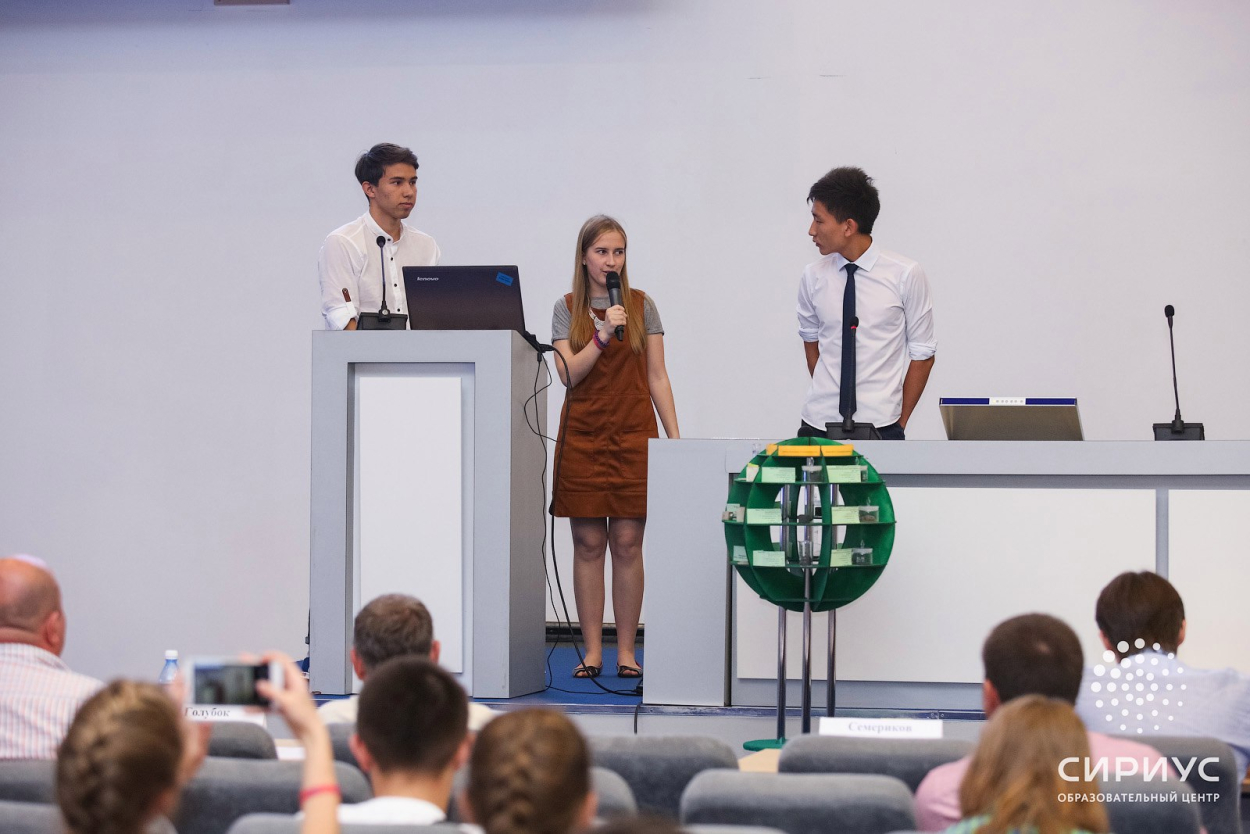A student of the SPbU Academic Gymnasium found a way to make electric cars cheaper

A team of young researchers including Elizaveta Avdeenko, a student of the SPbU Academic Gymnasium named after D. K. Faddeev, created a new type of fuel for electric vehicles. Their project was named among the best ones during the "Big Challenges" session at the "Sirius" Educational Centre.
This summer, 400 gifted children from all over Russia took part in the educational programme titled "Big Challenges". In the course of just one month they have created and presented their own projects within the framework of 12 areas of development of modern science. The "big challenges" to mankind include unmanned vehicles and logistics systems, agro-industrial, bio- and nanotechnologies, cognitive research, bionic robots, neurointerfaces and much more.
Elizaveta Avdeenko, a student of the SPbU Academic Gymnasium, owes her selection and enrolment on the "Sirius" programme to her victory in the All-Russian Competition of School Students' R&D Projects. Under the guidance of Anna Kartseva, a teacher of the SPbU Academic Gymnasium, Elizaveta developed her own version of a safe and environmentally friendly battery for this competition. To create this project, the girl was inspired by the task she had been solving within the framework of the All-Russian Chemical Tournament for School Students held at St Petersburg University. The problem statement required inventing a battery, where redox reactions of iron would be used.
"I realised that a chemical source of current could be made using any chemical reaction, it only needed to be reversible," the schoolgirl said. "For the Tournament task we were required to use iron, that was why I took Prussian blue. This substance is safe, so I created my project with the help of its redox reactions." Liza explains that for modern chemical sources of current, a large capacity is needed, so her project could not be implemented on an industrial scale. However, the battery proved to be inexpensive, safe and environmentally friendly: it is suitable for small home appliances that do not need much electricity.
"At "Sirius", my knowledge gained while working on this project at the Gymnasium were very helpful to me," Elizaveta noted. "To meet the big challenges our team had a month only, so without the training we had had at school we could not have made our project one the best works of this session." Her project at "Sirius" was a logical extension of Elizaveta's research papers. Together with four other enthusiastic school students the girl was working on a specific chemical source of current that could be used as fuel for electric cars.
An electric car is an environmentally friendly, yet extremely expensive, alternative to cars with petrol engines. A group of young researchers made it their task to reduce both the cost of an electric vehicle and its charging time. "Tesla electric vehicles can cover only 200 km without recharging, and one electric car costs 50,000 dollars, lithium-ion batteries making up about half of this price," Elizaveta explained.
The team of school students offered an alternative to ordinary batteries — a "liquid" zinc-manganese battery, the contents of which can be pumped out and replaced with new components. To this end, the young researchers reconstructed the battery and made all the chemicals liquid. With the help of a range of experiments, the school students have proved that such a "filling" of the battery does not affect its performance.
According to their idea, liquid chemicals such as zinc, manganese dioxide and electrolyte are alternately injected into the battery through transparent wires. Then the depleted components are pumped out using special pump pistons and transported to the plant, where they are processed for further use by means of electrochemical reactions.
The project "Chemical Current Source. Fuel for Electric Cars"was highly evaluated by the expert jury members, and Elizaveta was offered to present the team work at the final conference of the session at "Sirius". "Last year I also participated in such a session, but my work did not make it to the final conference," Elizaveta said. "I think a year of study at the Academic Gymnasium, where I transferred after the 9th grade, was of great help to me. Students of other schools, even of very good ones, have no opportunity to work at university chemical laboratories every week, like we at the Gymnasium do."
After the session at "Sirius" Elizaveta successfully presented her project dedicated to fuel for electric vehicles at another scientific event — Science Slam School Nano held within the framework of the All-Russian Children and Youth Forum "Nanograd-2017". She delivered a popular science lecture and was invited to become a guest of the Science Slam Nano finals on 4 December 2017 in Moscow.

